Are you currently facing challenges with account ownership that you believe need addressing? It's not uncommon to find yourself in a situation where disputes arise about who rightfully holds an account. In this article, we'll explore how to effectively voice your concerns and assert your rights with a well-crafted letter. So, let's dive in and help you navigate this processâread on to discover our handy template!
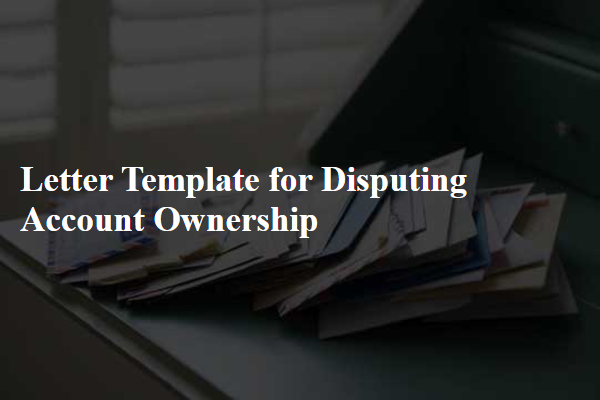
Accurate Account Information
Disputing account ownership can arise from issues such as identity theft or banking errors. Accurate account information is crucial for maintaining the integrity of financial transactions. When discrepancies occur, such as unauthorized access or incorrect personal details, addressing them promptly is essential. Financial institutions typically investigate disputes related to account ownership, involving thorough checks of identification documents and transaction history. Clear communication with customer service representatives can expedite resolutions. Maintaining records of communications and relevant documentation is advisable. Legal implications may arise if disputes remain unresolved, highlighting the importance of vigilance in monitoring personal financial accounts.
Formal Tone and Professional Language
Disputing account ownership requires a clear presentation of facts and relevant details. A formal letter should include precise information such as account numbers, dates of transactions, and any supporting documents. The letter should articulate the discrepancy, emphasizing the importance of accurate account documentation. An effective dispute letter should also outline the steps you have already taken to resolve the issue, including any previous communications with customer service representatives. Aim to maintain a respectful tone, while clearly asserting your position regarding the rightful ownership of the account. The expectation for a prompt and thorough investigation should be mentioned, as this underscores the urgency of the matter.
Specific Dispute Details
Account ownership disputes often arise in financial institutions, such as banks or credit card companies, where unauthorized activities appear on consumer accounts. Specific disputes can include claims over account numbers, highlighting incorrect balances or unexpected transactions. Documentation, such as statements or identification, may be required for verification. The timeline of unauthorized activity can be essential, particularly if transactions occurred within a recent timeframe, prompting urgent reviews. Key entities, such as the account holder's name and contact information, alongside the bank's contact details, enrich the dispute process. Clear details regarding the nature of the dispute ensure prompt and accurate resolution from the financial institution.
Supporting Evidence and Documentation
Account ownership disputes can arise from various situations such as unauthorized account access, identity theft, or clerical errors. Supporting evidence and documentation play a crucial role in resolving these disputes effectively. Clear evidence including government-issued identification, such as a driver's license (ID card) or passport, is essential to verify personal identity. Financial statements reflect transaction history, while utility bills confirm the residential address connected with the disputed account. Additionally, any correspondence or communications with the financial institution regarding the account can substantiate claims of ownership or discrepancies. Legal documentation, such as a police report, may be necessary if identity theft is involved, ultimately establishing a clear connection to the account in question.
Clear Resolution Request and Contact Information
Disputing account ownership can be a challenging process requiring clear communication and effective detailing of the request. Providing a concise explanation of the issue is essential, including specific details about the disputed account, such as the account number (typically a set of 10-12 digits) and the date of account creation or related events. Incorporating any relevant documentation, like identification or previous correspondence, can further substantiate the claim. Mention the desired resolution, such as correction of ownership or verification steps needed. Include comprehensive contact information, including phone numbers, email address, and mailing address, ensuring that all lines of communication remain open and accessible to facilitate a swift resolution of the dispute.
Letter Template For Disputing Account Ownership Samples
Letter template of challenging account ownership with a credit card issuer.
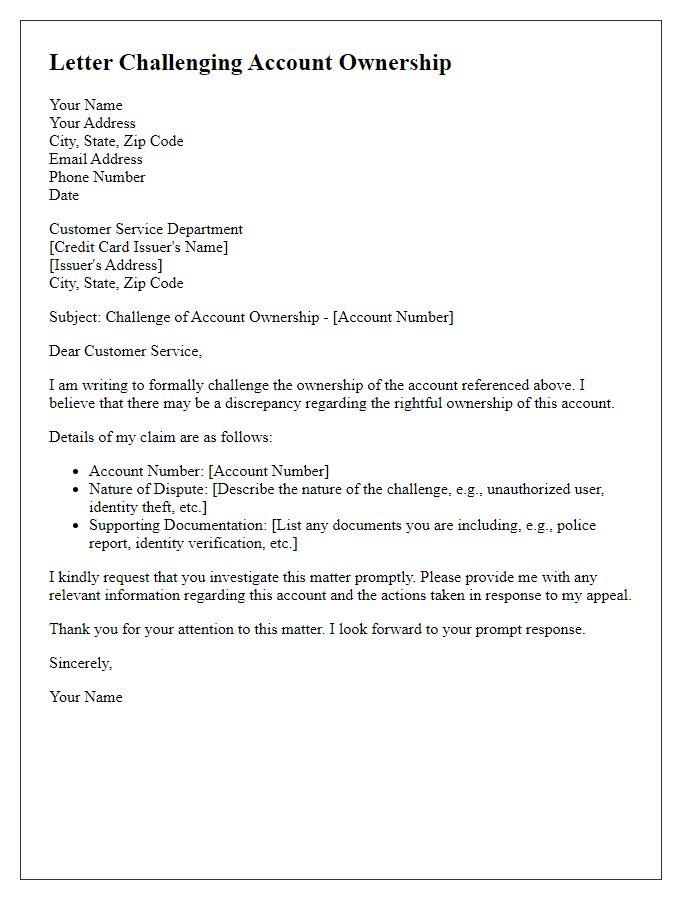
Letter template of account ownership disagreement for mortgage services.
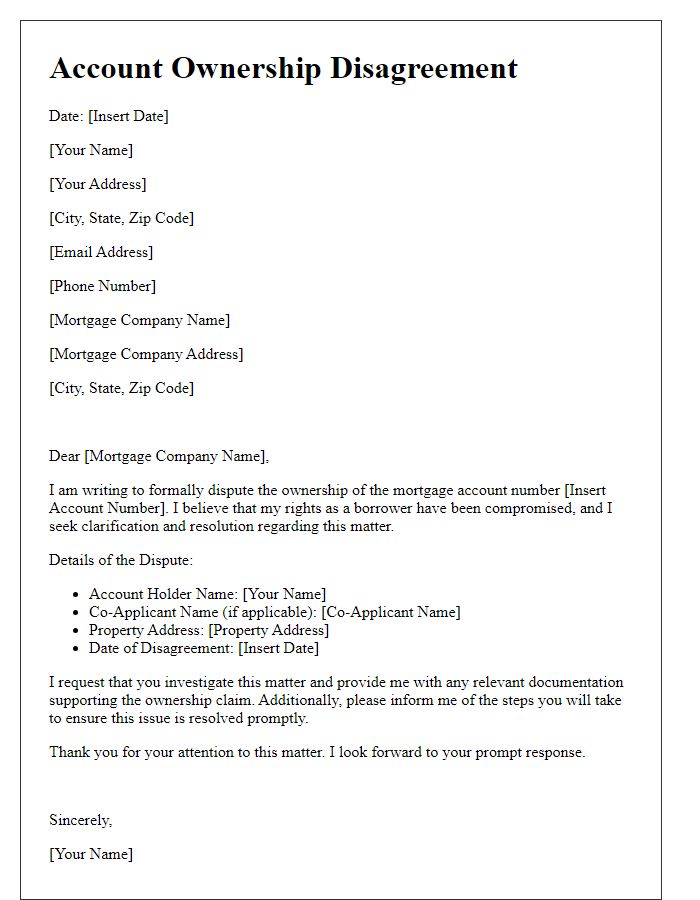
Letter template of disputing identity theft related to account ownership.
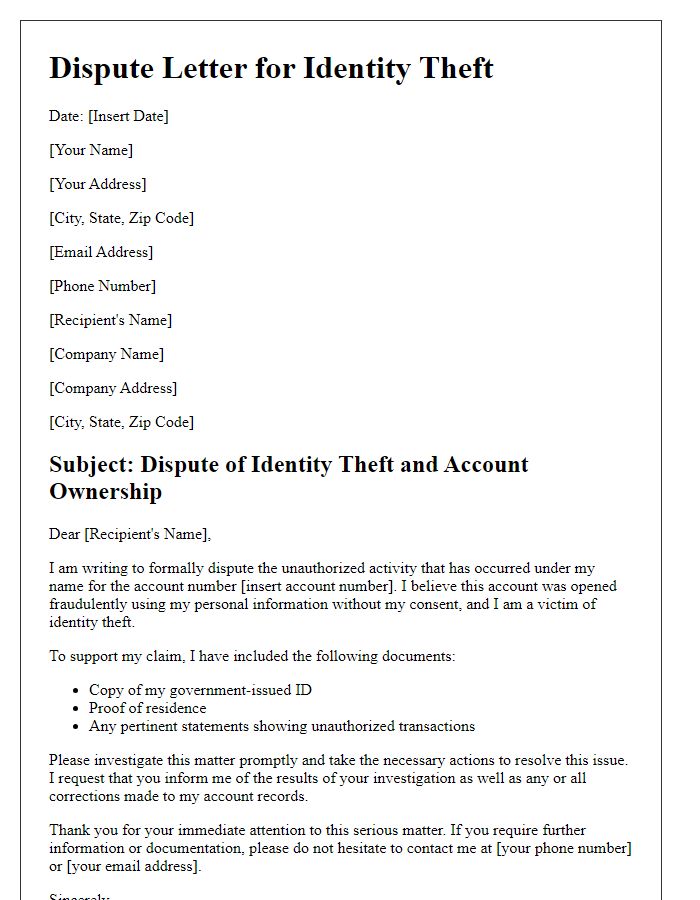
Letter template of appealing account ownership determination for health insurance.
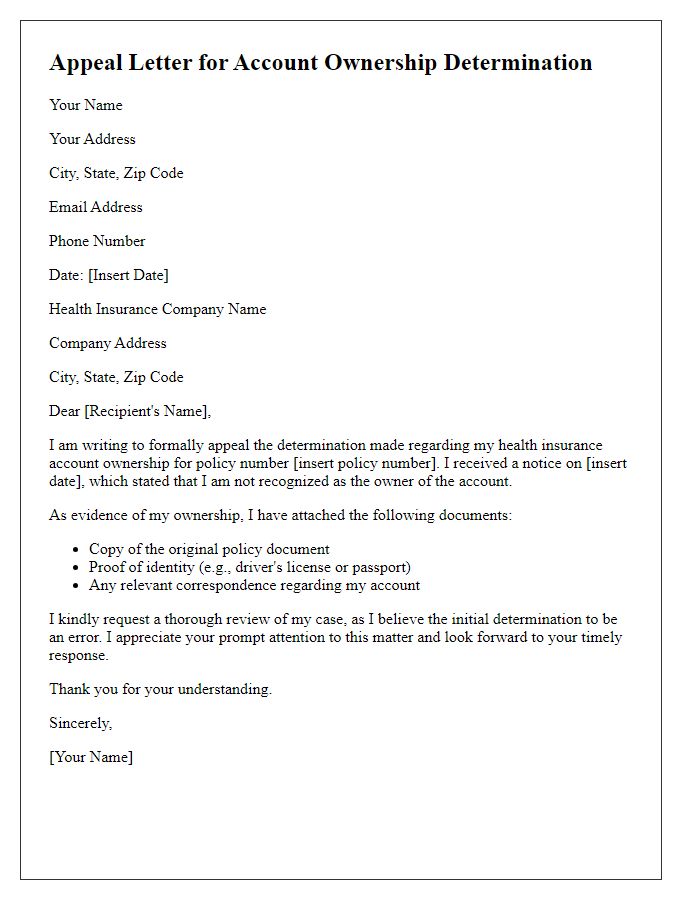
Letter template of addressing account ownership issues for online services.
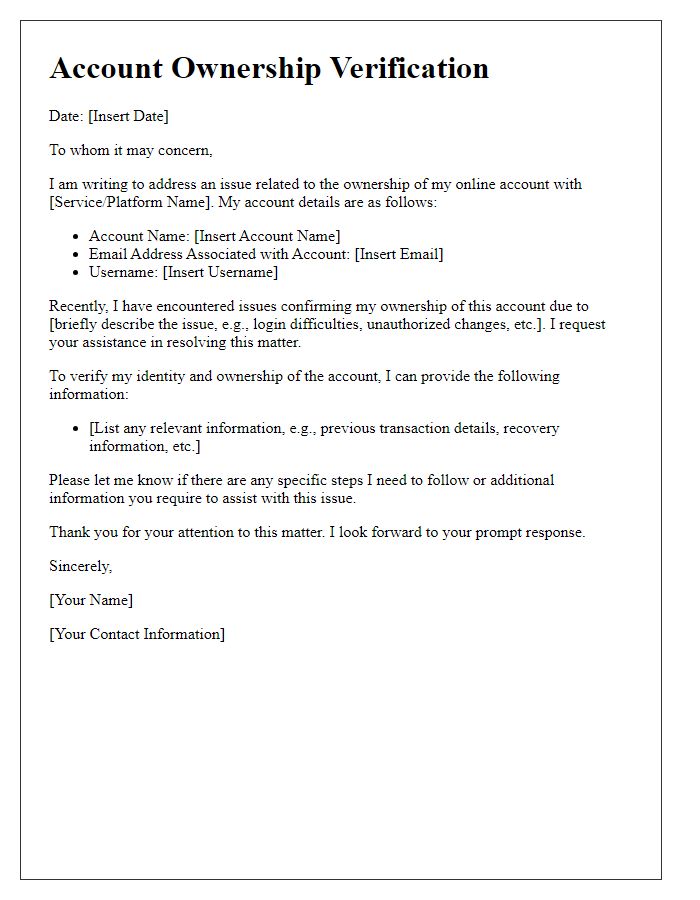
Letter template of contesting account ownership with a collection agency.
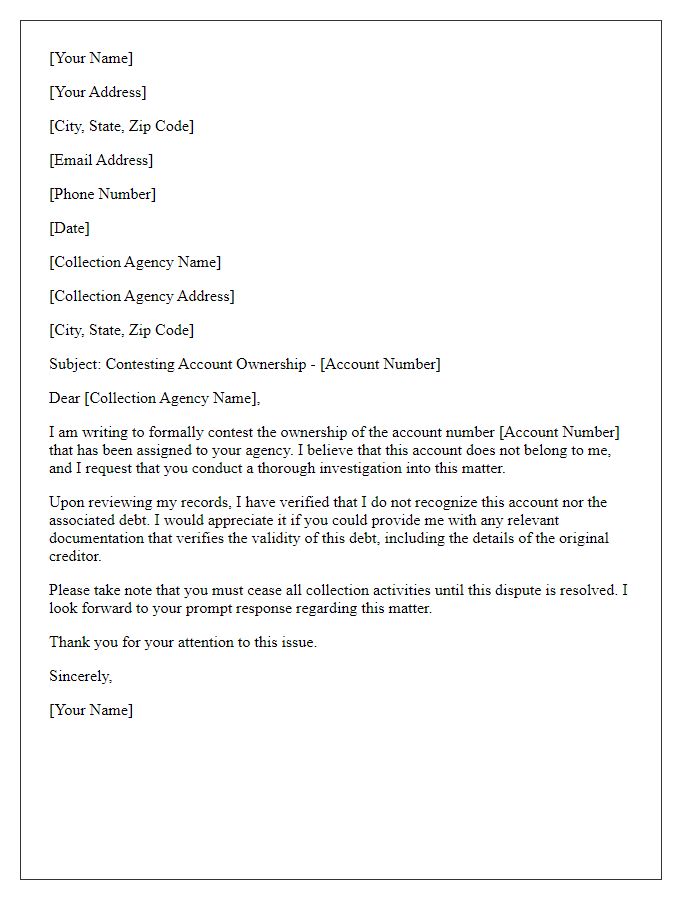

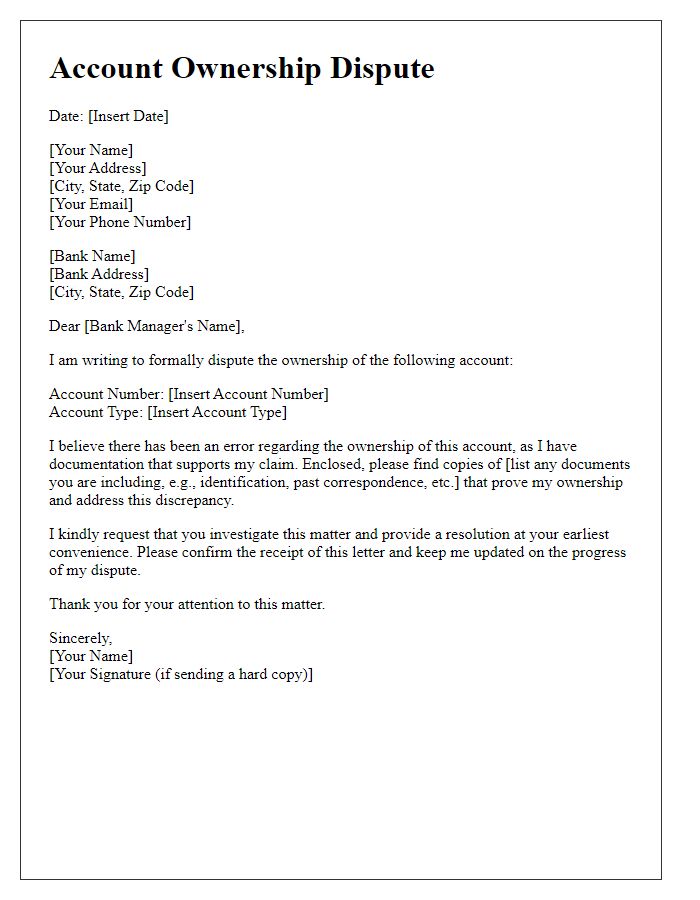
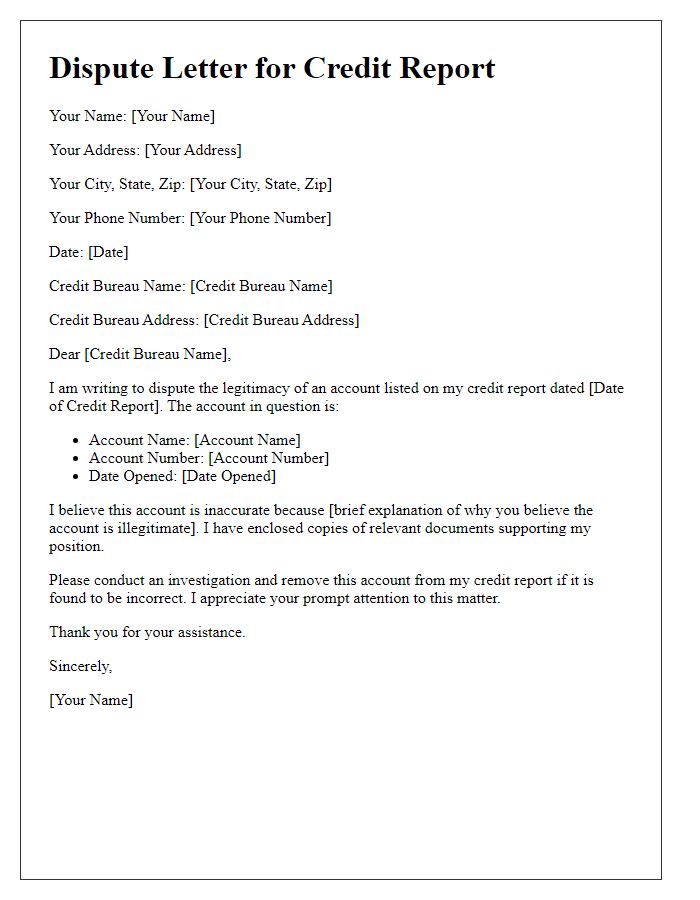
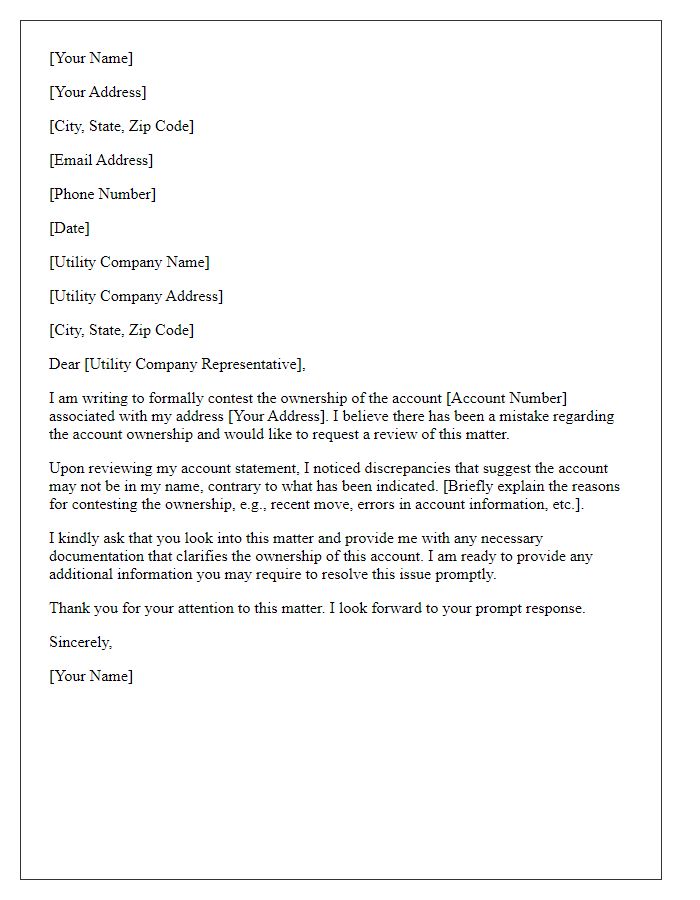
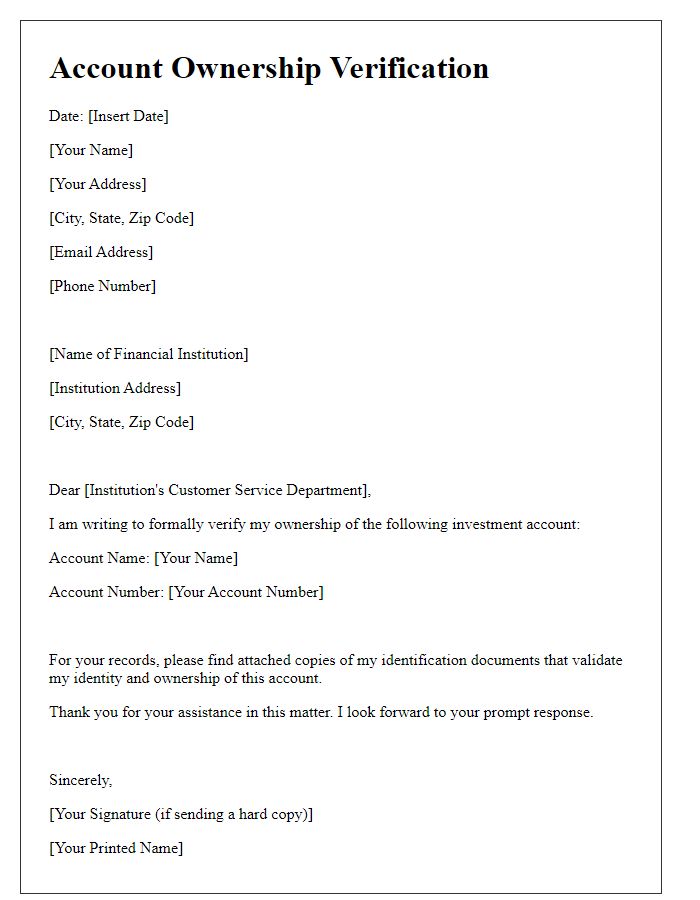

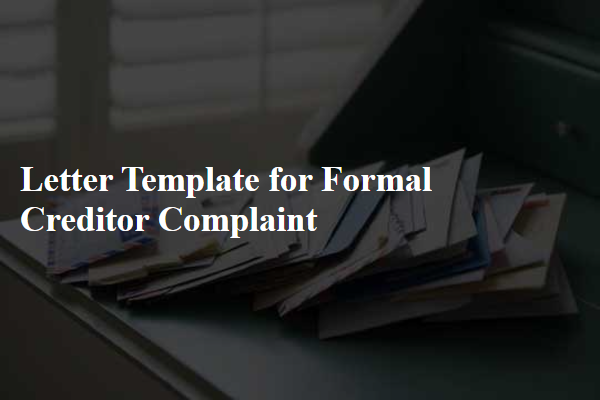
Comments